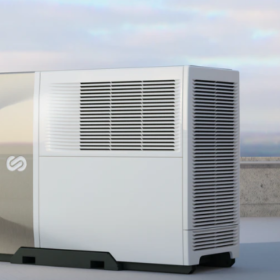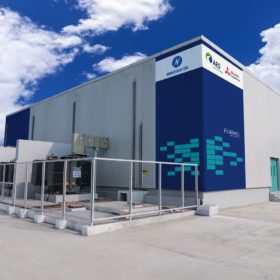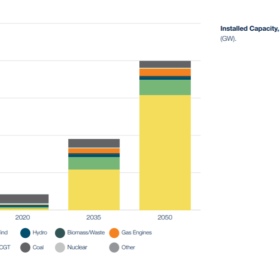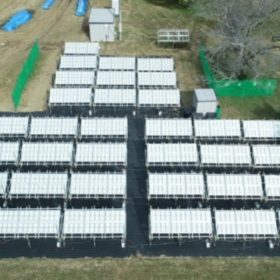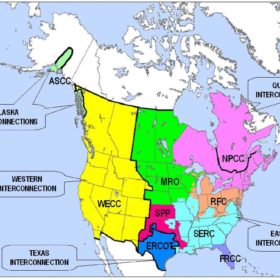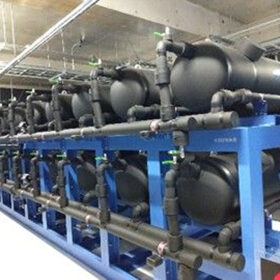Hydrogen power generator for isolated areas, construction sites, events
Developed by French start-up EODev, the 100 kVa system is equipped with fuel cells manufactured by Toyota. The generator has a power of 110 kVA and its lifetime is guaranteed for 15,000 hours.
Larsen & Toubro targets carbon neutrality by 2040
The Indian multinational EPC contractor will increase the share of renewable energy in the electricity mix across its campuses and project sites as part of efforts to reduce its carbon footprint.
International Solar Alliance launches programs on solar and battery waste management, green hydrogen
The International Solar Alliance (ISA), which aims to mobilize more than $1 trillion of solar power investment by 2030 in its member countries, expanded its scope of work by launching programs on solar panel and battery waste management and solar-powered hydrogen production in its fourth assembly held recently.
Grid-scale battery storage and green hydrogen market shaping up in India
India has seen substantial activity in the domestic battery storage and green hydrogen markets, from the entry of Reliance and Acme Solar in green hydrogen to gigawatt-scale battery storage tenders by NTPC and the Solar Energy Corporation of India (SECI). There are more private ventures in the offing, indicating the government’s policy push is in the right direction.
All-renewables power system with 76% solar share could halve electricity costs and drive net-zero by 2050
A power system modeling study, jointly carried out by Lappeenranta-Lahti University of Technology (LUT) and Wärtsilä, explores the feasibility of a net-zero-emissions power system in India by 2050. It shows that an all-renewables power system, when paired with flexible generation technologies (thermal balancing power plants and energy storage), can improve the affordability of electricity while ensuring the reliability of system operations.
Panasonic launches 5 kW fuel cell system for commercial applications
The system has dimensions of 834×417×1,766 mm and weighs 205 kg including the design panel. It achieves an electrical efficiency of 56% and can be connected with a hot water storage unit.
New solar-powered hydrogen tech from Japan
Moreover, two big Russian corporations have unveiled plans to produce hydrogen and Portuguese utility EDP said it wants to set up a a pilot project for a green hydrogen plant in Brazil.
Mapping the future of cleaner transportation
Eight key developments are accelerating the advancement of electric vehicles. These range from the improvements in cost and performance of electric vehicle (EV) batteries to hydrogen-powered vehicles.
Cheapest long-duration storage for systems with high renewables
National Renewable Energy Laboratory researchers have studied which tech offers the lowest levelized cost of energy to provide the US Western Interconnection grid with electricity when wind and solar are not available. They assumed 85% renewables penetration and determined that geologic hydrogen storage and natural gas combined-cycle plants with carbon capture storage are the cheapest options for 120-hour discharge applications.
India planning to call bids for 4 GW electrolyzer capacity
Currently, the cost of producing green hydrogen ranges from 3.6 to 5.8 USD/kg depending on the renewable energy mix and electrolyzer technology. Scaling the electrolyzer production globally will help drive down green hydrogen costs.
